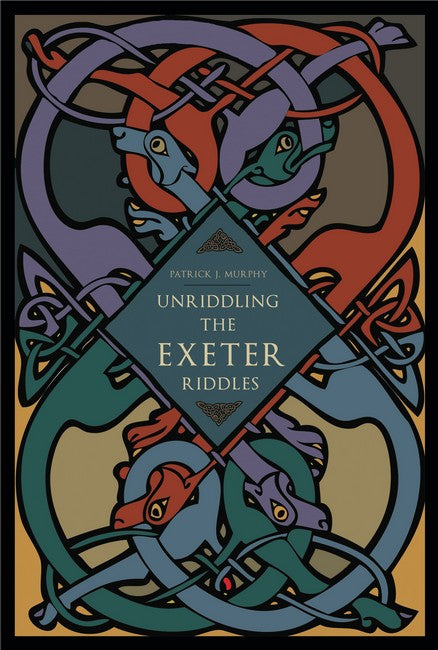“Most studies of the Exeter Book riddles treat them singly in order to offer a particular solution, playing the riddler’s game in modern terms. In one of the few studies since Williamson’s watershed edition that addresses this group of riddles as a whole, Patrick J. Murphy brings a new theory to bear. Positioning his study in response to both popular and learned riddling, he argues that the coherence of many of the Old English riddles is shaped by extended implicit metaphors; he calls this shaping ‘focus.’ After providing a lively summary of previous practice in his introduction, and laying the groundwork there for his new theory, in chapter 1, he explains the theory in lucid detail, with much attention to oral forms of riddling. He uses the focus idea in chapter 2 to propose a new metonymic meaning for the ‘dark swarms’ of Riddle 57, and in chapter 3 he shows how his method enriches even those riddle solutions that scholars generally agree about. Chapter 4 argues that the underlying focus of Riddle 17 (about bees) is a well-known biblical story, and chapter 5 addresses the ‘sex riddles,’ making the point that focus is not necessarily fixed; a riddle may drift in and out of its focus. Chapter 6 demonstrates this by peeling the layers off Riddle 25, in which a fluidly gendered onion takes its ‘caustic revenge.’
“The author has clearly enjoyed following the dark tracks of these riddles (with far more complexity than suggested above), as will readers both new and old in the study of enigmatics and Old English poetry. The approach offered here, specific to the construction of the Exeter Book riddles, makes the task of unriddling them more engaging and intriguing than ever.”
—Marijane Osborn, University of California, Davis

